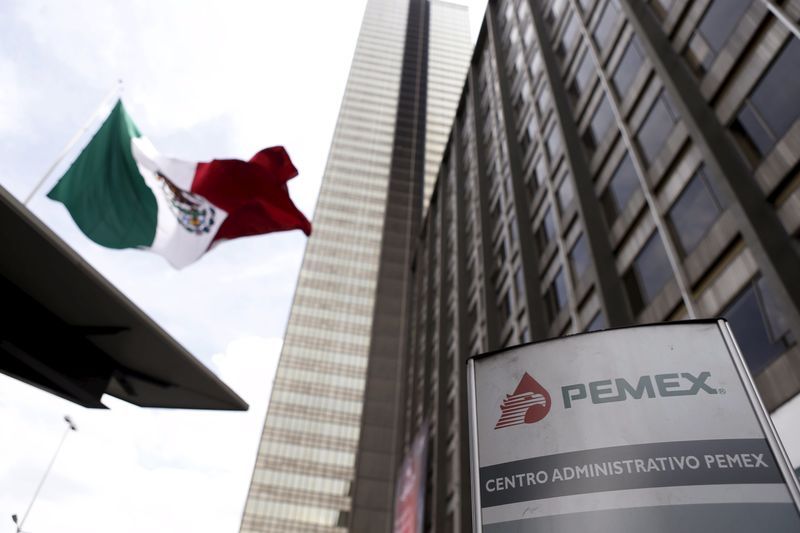By David Alire Garcia
MEXICO CITY, Oct 4 (Reuters) - Mexico will offer the rights to partner with state oil company Pemex on three major projects on Wednesday, one in the shallow waters of the Gulf of Mexico and two more onshore, the latest step in opening country's oil and gas industry.
The three joint ventures, or farm-outs, aim to help Pemex, formally known as Petroleos Mexicanos, develop areas with private capital and expertise.
In each case, Pemex would retain a 50 percent stake in the project but will cede operational control.
The auction run by industry regulator, National Hydrocarbons Commission, is only the second time partnership rights for a Pemex project have been made available.
The first joint venture auctioned last December was won by Australia's BHP Billiton (LON:BLT), which took a 60 percent operating interest in Pemex's deepwater Trion project, a development seen requiring some $11 billion over the life of the contract.
BHP is not bidding for any of the projects on the block on Wednesday, but speaks highly of its minority partner.
"We have been very pleasantly surprised with (Pemex's) quality, both technically, commercially and from an understanding of how to do work in Mexico," said Steve Pastor, BHP's Houston-based president of petroleum.
Ten bidders have pre-qualified for the auction.
Six are aiming to operate as Pemex's sole partner, including China Offshore Oil Corporation, Colombia's national producer Ecopetrol and Germany's DEA Deutsche Erdoel. Four others have pre-qualified in consortia, including a tie-up between U.S.-based Murphy Oil (NYSE:MUR) and Mexican independent Sierra Oil & Gas.
The projects on offer include a production-sharing contract for the shallow water Ayin-Batsil area, and license contracts for the onshore blocks, Ogarrio and Cardenas-Mora.
Ayin-Batsil is a 423 square mile (1,096 sq km) mostly heavy oil field along the southern edge of the Gulf of Mexico believed to contain 359 million barrels of oil equivalent (boe) in proven, probable and possible reserves.
The Ayin-Batsil tie-up will be awarded based on which bidder offers the government the largest share of operating profits, with a minimum set at 18.2 percent and a maximum of 25 percent.
The onshore contracts will be awarded based on which bidder offers the government the largest additional royalty, with a minimum set at 1 percent and a maximum of 13 percent. In the case of a tie, the bidder offering the largest cash bond wins.
